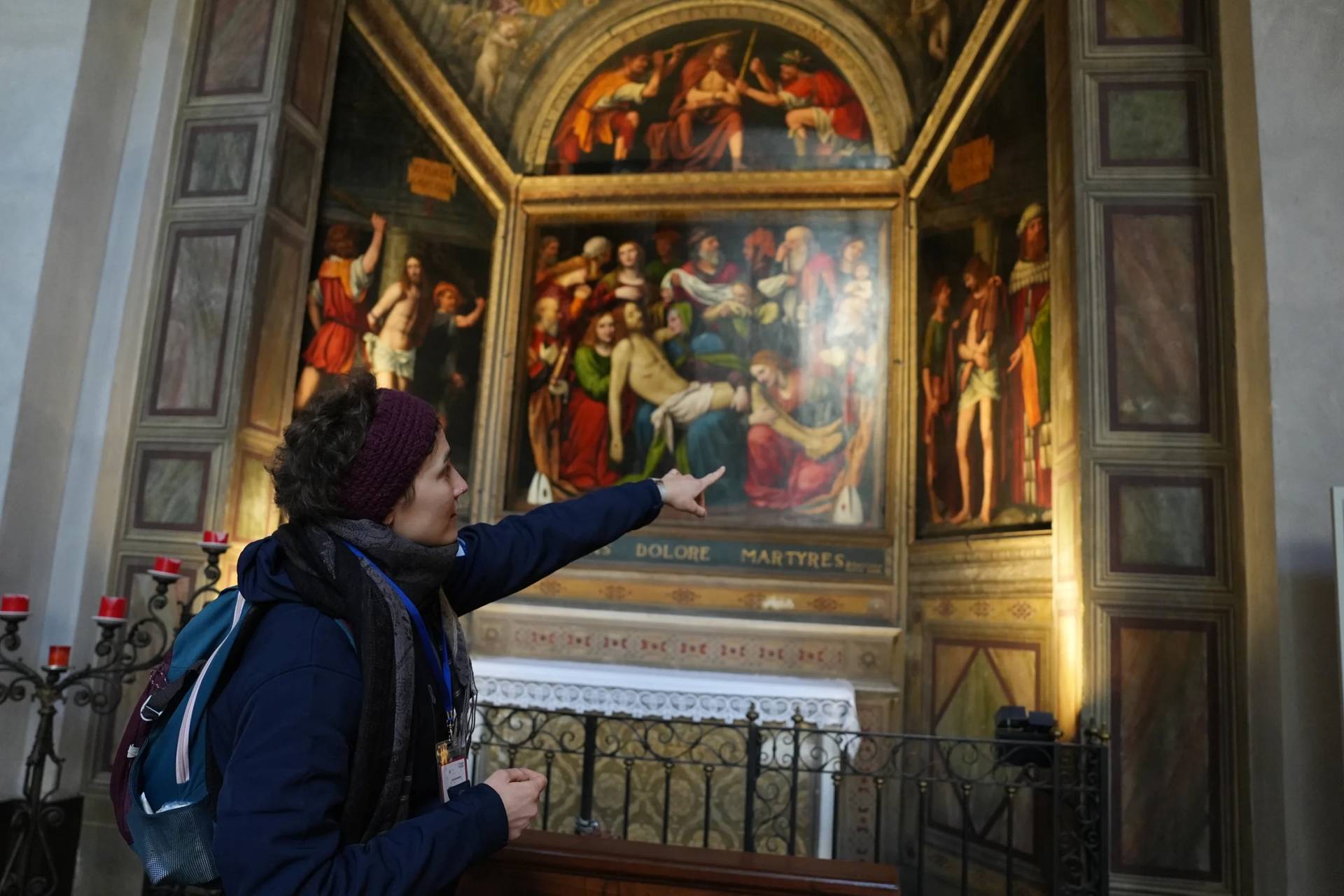ROME – Of all the silly and self-defeating habits the Vatican has fallen into over the years – and, let’s face it, it’s not a short list – censoring the words the pope speaks during his airborne press conferences is perhaps the most absurd.
After all, the pope speaks those words in front of about 70 journalists traveling with him aboard the papal plane, virtually each one of whom records them faithfully from start to finish and then painstakingly transcribes them, pondering each syllable for meaning.
Thus when the Vatican revises its official transcript a few days later, usually trying to make an error disappear, do they really think nobody will notice?
The most recent case in point involves the news conference Pope Francis conducted on his way back from a Dec. 2-6 trip to Cyprus and Greece, in which he addressed the case of the recently resigned Archbishop of Paris, Michel Aupetit.
Aupetit offered his resignation, which was swiftly accepted by Francis, after a media expose in France suggested he’d been involved in a relationship with an adult woman. Aupetit has denied there was anything sexual, but conceded the relationship was “ambiguous.”
Here’s what Francis actually said about the case, as recorded and published by the Italian newspaper Corriere della Sera, considered the country’s paper of record:
“It was a lack against the sixth commandment, but not a total one … small caresses, massages on the secretary, that’s how things stand. And this is a sin, but not a grave sin. The sins of the flesh aren’t the gravest sins.”
Journalists found the answer puzzling because, prior to that point, there had been no suggestion of Aupetit inappropriately massaging one of his secretaries. The key point in the original article was that the relationship with the woman, named “Colette,” came to light because Aupetit had sent a private letter meant for her to his secretary instead.
Indeed, reporters went back over the recordings multiple times to be sure Francis had actually used the word massaggi, “massages,” rather than messaggi,” “messages,” since there’s only one vowel’s difference. In fact, he said “massages.”
Now, however, if you check the official transcript on the Vatican site, the pope’s words have been edited to read: “ … small caresses, the massages that he gave.” There’s no longer any mention of a secretary, and no other suggestion about who might have received these massages.
(As a footnote, editing tapes seems to be in vogue in the Vatican at the moment, since the key issue in the mega-trial involving Italian Cardinal Angelo Becciu is the prosecution’s deletion of about two hours of material from audio and video recordings of interrogations of key witnesses.)
In the meantime, another article about Aupetit has appeared in the French press, this one suggesting there’s another woman, a consecrated lay woman and theologian named Laetitia Calmeyn, with whom the archbishop also had a secret relationship. In this case, Aupetit’s lawyer quickly released a statement calling the new report, which utilized photos taken with telephoto lenses, “slanderous and nauseating,” and suggested they may pursue legal action against the publication.
Even in this latest report, however, there was nothing about Aupetit giving massages to anyone, leaning unresolved the mystery of what, exactly, Francis had in mind when he used that word last Monday.
Only two conclusions seem possible.
First, the pope simply got it wrong. There never were any untoward massages, but somehow Francis got that into his head and then said it out loud. If that’s the case, obviously the simpler thing for the Vatican to do would be to admit it … append an asterisk to the transcript saying the pope made a mistake and the error has been corrected, the way responsible media organizations handle similar errors in reporting.
A related possibility is that Francis was speaking colloquially, the way one might say of an employee who inflated her résumé that she “gilded the lily.” You don’t mean there was an actual lily involved, and perhaps Francis didn’t mean to suggest there were actual massages, simply relatively minor physical intimacies that don’t add up to a mortal sin.
Again, if that’s the case, why not just say so?
The other possibility is that Francis knows something we don’t, and perhaps that helps explain why he acted so swiftly in accepting Aupetit’s resignation in comparison to other cases of embattled prelates who volunteer to step down.
Ironically, Francis was attempting to argue that Aupetit’s right to a good name has been injured by malicious gossip in the press. Yet by injecting this reference to “massages” that seemed to come out of nowhere, Francis actually appears to have stoked speculation about what else Aupetit might have been up to, not quelled it.
In any event, what the Vatican’s clumsy effort at rewriting history seems to have accomplished is to ensure that the question of what else the pope knows is likely to fester much longer than it would have otherwise.
In other words, the massage has become the message. And, if nothing else, that’s a sentence you don’t get to write every day on the Vatican beat.
Follow John Allen on Twitter: @JohnLAllenJr














